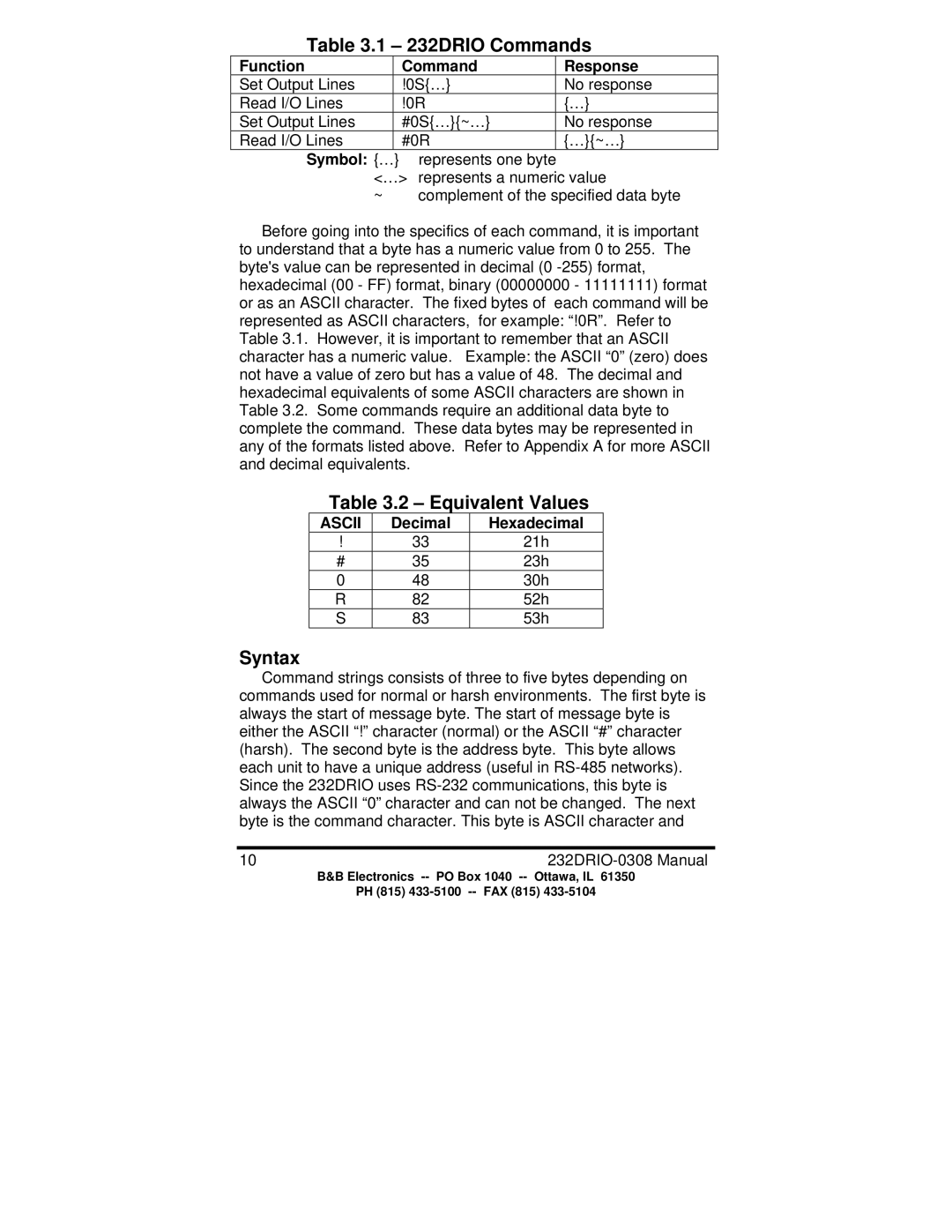Table 3.1 – 232DRIO Commands
Function | Command |
| Response |
Set Output Lines | !0S{…} |
| No response |
Read I/O Lines | !0R |
| {…} |
Set Output Lines | #0S{…}{~…} |
| No response |
Read I/O Lines | #0R |
| {…}{~…} |
Symbol: {…} | represents one byte |
| |
<…> represents a numeric value
~complement of the specified data byte
Before going into the specifics of each command, it is important to understand that a byte has a numeric value from 0 to 255. The byte's value can be represented in decimal (0
Table 3.2 – Equivalent Values
ASCII | Decimal | Hexadecimal |
! | 33 | 21h |
# | 35 | 23h |
0 | 48 | 30h |
R | 82 | 52h |
S | 83 | 53h |
Syntax
Command strings consists of three to five bytes depending on commands used for normal or harsh environments. The first byte is always the start of message byte. The start of message byte is either the ASCII “!” character (normal) or the ASCII “#” character (harsh). The second byte is the address byte. This byte allows each unit to have a unique address (useful in
10 | |
B&B Electronics | PO Box 1040 |
PH (815)
